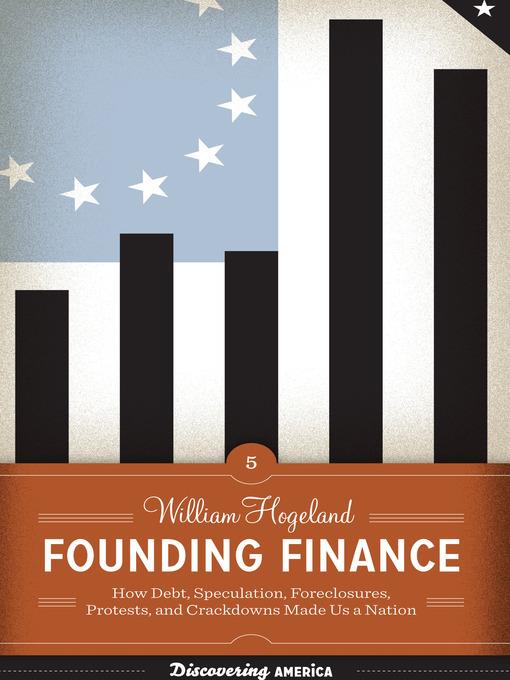
Founding Finance
How Debt, Speculation, Foreclosures, Protests, and Crackdowns Made Us a Nation
کتاب های مرتبط
- اطلاعات
- نقد و بررسی
- دیدگاه کاربران
نقد و بررسی

September 1, 2012
Hogeland (Declaration: The Nine Tumultuous Weeks When America Became Independent: May 1-July 4, 1776) examines how populists striving for economic and social justice were derailed in the founding of the United States and how both today's Tea Party and Occupy movements mistakenly look to the Founding Fathers for historical justification. He shows that wealthy merchants and planters dominated society as lenders and landlords. He cites the North Carolina Regulators, the Pennsylvania Committee of Privates, and the Whiskey Rebellion as populist attempts at egalitarian reform and notes how, in defense, the economic elite formulated a strong federal government built on centralized banking with taxing and military powers. Familiar names such as Alexander Hamilton, John and Samuel Adams, and George Washington figure prominently in his study but so too do egalitarian radicals such as Thomas Paine and Herman Husband. Hogeland concedes that he is at variance with consensus historians. VERDICT This provocative work will displease members of both the right and the left, but it is recommended to academic and other readers who wish to dig beneath history's surface and note both the populist and anti-populist dimensions of the nation's founding.--Lawrence Maxted, Gannon Univ. Lib., Erie, PA
Copyright 2012 Library Journal, LLC Used with permission.

September 1, 2012
Hogeland explains the financial and economic issues important to the delegates at the 1787 Constitutional Convention, while ordinary people throughout the country, long barred from political powerthe democracy'were organizing to get control of the American government and use it to make finance and economic policy restrain wealth and foster equality. The democracy can mean mob or crowd, Hogeland reminds us as he tells of the struggles of founding-era Americans over cash, credit, and debt. He suggests that convention delegates would be surprised to learn of the 2012 conservative Tea Party's small government beliefs and efforts to reduce taxes as elemental purposes in our nation's founding. They would also be surprised at the liberal Occupy Wall Street movement's use of We the People from the Constitution as its slogan to democratize finance. Democratic egalitarianism was critically important to our becoming independent, but our nation was formed on democracy's being crushed. This is a thought-provoking book that may appeal to library patrons interested in history and finance.(Reprinted with permission of Booklist, copyright 2012, American Library Association.)

























دیدگاه کاربران